More about: Things to Do in Krakow in 3 Days
History, architecture, gastronomy, culture... In three days in Kraków you'll have time to enjoy all this and also take one of the most popular (and toughest) excursions from the Polish city: a visit to the Auschwitz concentration camp.
Day 1: Discover the Old Town
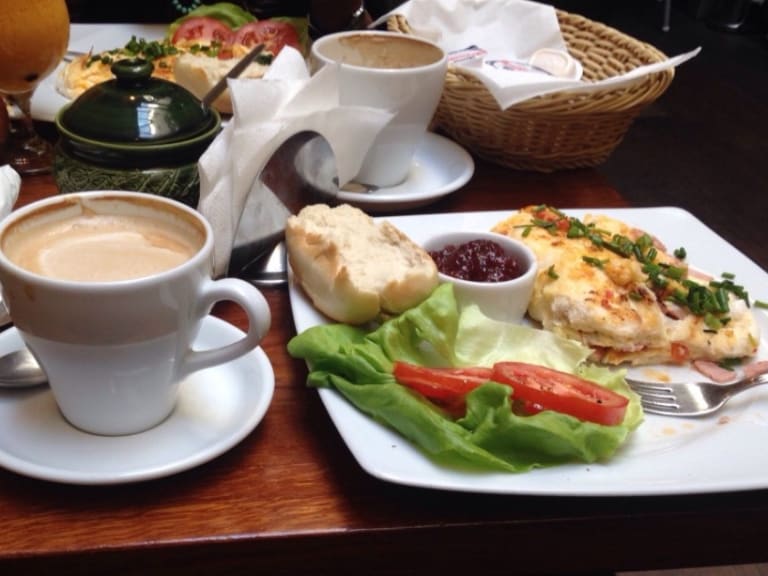
Kraków is a charming city and most of its attractions are located in the Old Town. On your first day, you can explore the Stare Miasto quarter, a medieval gem that you can easily explore on foot.
Start your day with a spectacular breakfast
Before exploring Kraków, you'll need to recharge your batteries. To start the day with energy, I recommend:
- Café Botanica: This bar is located at 9 Bracka Street and specialises in the first meal of the day. Another strong point is the atmosphere of the place: inside, the red brick walls and plants create a very relaxing atmosphere.
- Wesola Cafe (17 Rakowicka Street), a place run by enthusiasts of the precious dark liquid. Their espressos are made with twice as much ground coffee. Not bad, right?
- Milkbar Tomasza (24 Sw. Tomasza St.).
- Camelot (17 Sw. Tomasza St.).
Explore the Market Square
Market Square (Rynek Glówny) is the heart of Kraków and an enclave you will get to know in detail if you book a guided tour of the Old Town. This huge space is dominated by the majestic Cloth Exchange (Sukiennice), a Renaissance-style building that housed merchants who traded in textiles. Strolling under its arches you can buy a few souvenirs at very competitive prices.
At this point, don't miss a guided tour of the Rynek underground museum, which lies four metres below the square and is the youngest museum in Kraków. Its touch screens and holograms take us back to the past, when the square had not even been laid out. The virtual reality is flanked by traditional archaeological finds and the remains of an 11th century cemetery. Due to its popularity and limited capacity, it is preferable to book a guided tour of the Rynek Underground Museum in advance.
For more information about this first stage, I recommend reading the post What to see and do in Krakow's Market Square
Enter the nearby St. Mary's Basilica
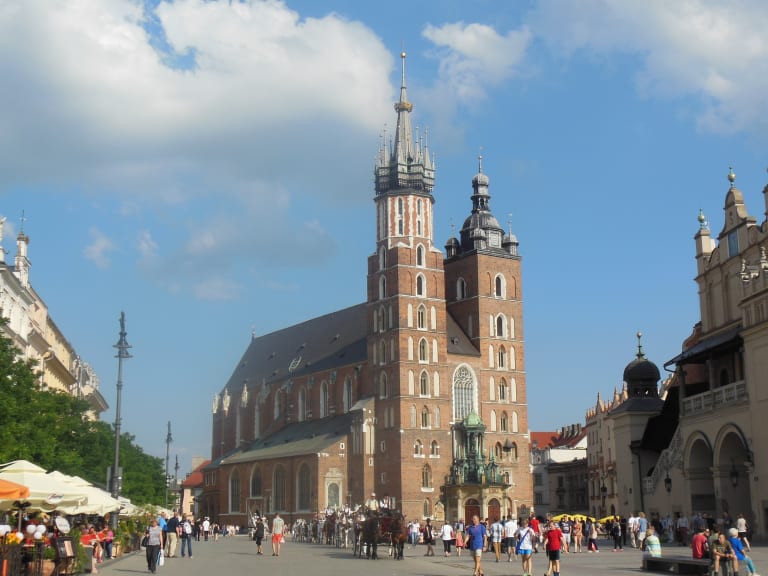
Next, I recommend that you book a guided tour of Krakow. Most of them will give you the opportunity to admire St. Mary's Basilica, which has two towers of different heights. Legend has it that under the reign of Duke Boleslaw the Modest it was decided to add two towers to the body of the church and two brothers were given the task. When the younger one realised that his watchtower was lower, he killed his brother out of envy. However, remorse tormented him and on the day the church was to be consecrated, he committed suicide with the same knife.
Once inside, you will be able to appreciate the main attractions of the Basilica of Santa Maria, which are essentially three: the blue ceiling, the splendid stained glass windows and the wooden altarpiece by the German artist Veit Stoss depicting the Virgin Mary among the apostles. Generally, you can enter without paying, but you will have to use a side entrance. If you are interested in religious tourism, check out our article 10 must-see churches in Krakow
Climb Wawel Hill
Once you have finished visiting the basilica, you can take a short walk in a southerly direction. In just over ten minutes you will reach the foot of a limestone rock that rises above the Vistula. At its summit stand two symbols of the city: the castle and the cathedral.
In the 16th century, King Sigismund I the Old called to his court the best Polish and foreign artists who gradually carved this magnificent Renaissance castle that we can still see today. I recommend that you book a guided tour of the Wawel Castle, which houses some very interesting permanent exhibitions, in order to delve deeper into this architectural jewel:
- The royal apartments, a collection of tapestries, portraits of kings and princesses, furniture and paintings by Italian and Dutch artists, and a collection of paintings and sculptures.
- The royal flats
- The treasury and armoury of the Crown, which brings together insignia, jewellery, arms and armour.
- The oriental art exhibition with Turkish and Persian banners, weapons and carpets and a few ceramic objects from China and Japan.
A few metres further on rises the Wawel Cathedral, the former coronation place of the Polish kings. After crossing the threshold, you can admire the mausoleum of St. Stanislaus, the patron saint of Poland who was murdered by King Boleslaus himself. Thanks to this tomb, Wawel Cathedral is the most important place of worship in the whole country. For more info, you can check the post Visit Krakow Castle: opening hours, how to get there, guided tours and more
Return to your hotel and get ready for dinner
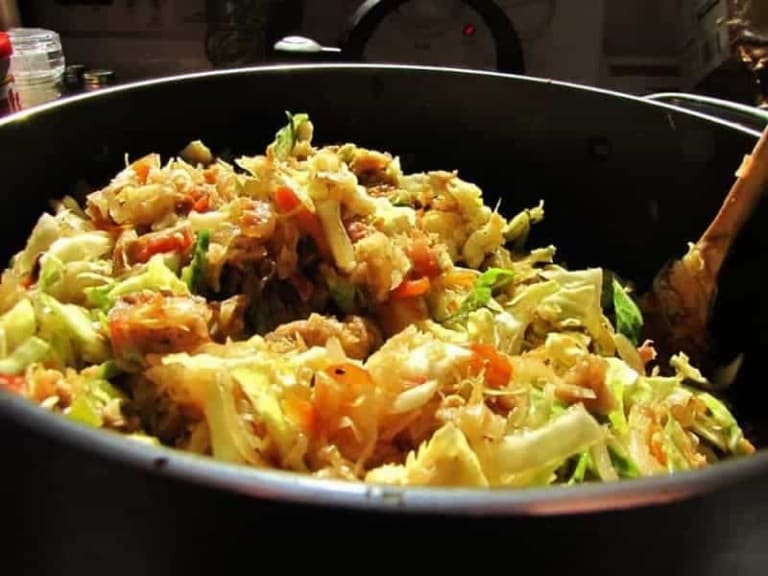
After a first foray, it's time to return to your accommodation for some well-deserved rest. If you want to get to and around Krakow comfortably during your stay, be sure to buy the Krakow Card with museum and transport pass
Once at the hotel and after a short break, you'll be ready to go out for dinner. One of the most popular restaurants in Krakow is Trzy Gęsi where you can try traditional recipes with a modern twist.
My recommendation is to choose a tasting menu to start a culinary journey with the experienced chefs. The restaurant is located at 7 Kupa Street and is open from 17:00 to 23:00 (Tuesday - Saturday) and from 13:00 to 20:00 (Sunday). Reservations are recommended well in advance.
Conclude the first day in a bar with live music.
Do you love jazz? If the answer is "yes", you absolutely must visit the Piano Rouge. Located in the heart of the city (46 Rynek Glowny Street), this jazz bar is characterised by a burlesque atmosphere with red lights, feather boas and velvet cushions. Live music is played every night from 9 p.m. and while you enjoy the show, you can have a cocktail or a glass of wine.
If you fancy something a little livelier, head to Kazimierz. The Jewish quarter is the most party-loving area of the city, and on Estery Street you'll find a bar that has become a real institution: the Alchemia. It owes its name to the alchemists' tools used as decoration and is famous for its musical offerings. In its lounge you can listen to jazz and rock music by well-known local artists and bands.
And if you are looking for something more popular, book tickets for a folk show in Krakow to enjoy a show featuring a folk group in a typical venue.
Day 2: Take a spooky tour
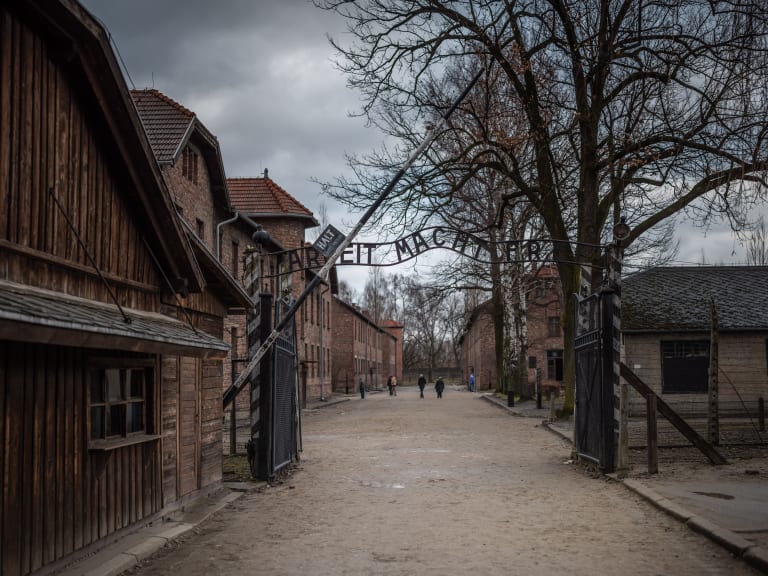
Thousands of tourists travel to Krakow to visit a place that everyone knows about and that leaves no one indifferent: Auschwitz. Everyone should cross its entrance at least once in their lives so as not to forget this sad page of history.
Spend half a day at the Auschwitz-Birkenau concentration camp
A weekend in Krakow will give you the opportunity to visit an emblematic place of contemporary history: the Auschwitz-Birkenau concentration camp, a symbol of terror and genocide perpetrated against Jews, Gypsies and homosexuals. It is not an easy trip, but sometimes you have to make the effort to see the horrors of war at first hand.
The concentration camp is located in Oświęcim, 60 km from Kraków. You can get there by bus, train or car. However, to understand the historical significance of the site and learn the stories of its prisoners, it's best to book a tour, especially if you're travelling to Poland during the high season (April to October). Here are a few options:
- Auschwitz tour from Krakow, from £39.
- Auschwitz and Wieliczka salt mines tour fromKrakow, from £91.
- Tour to Wieliczka Salt Mines and Auschwitz-Birkenau from Krakow, from £100.
- Excursion to Auschwitz-Birkenau camp from Krakow, from £28.
- Excursion to Auschwitz-Birkenau Memorial and Museum from Krakow, from £34.
- Excursion to Auschwitz-Birkenau from Krakow, from 34.
In the article Excursions to Auschwitz from Krakow you can find practical information on how to choose a tour. In the list below, on the other hand, I provide you with some useful information on how to make the visit. In addition, I recommend you to read the post 10 Tips for visiting Auschwitz from Krakow.
Try zapiekanka in Plac Nowy

On your return to Kraków, you can try a typical Polish meal: zapiekanka, a half-baguette with mushrooms, ham, cheese and vegetables. It's the Polish equivalent of pizza and derives its name from the local term for baking. Once a cheap treat for students and workers, today there are more refined versions to suit even the most discerning palate.
In the city, Endzior is the most sought-after bar. The establishment is located in the heart of Kazimierz (Plac Nowy 4) and is known for its quality/price ratio and generous portions. As usual, you'll have to queue a bit to get your baguette. And after your snack, don't hesitate to book an open bar pub crawl.
Finish the day in a spa
After a day that has been both physically and emotionally challenging, you can realign your soul in a spa in the city centre. In Kraków there is a unique place that combines two very popular elements: relaxing treatments and beer. The establishment is called Beernarium Piwne Spa and is located at Floriańska Street 13, just two minutes away from the Market Square. Here you can literally bathe in beer whose ingredients rejuvenate your skin.
As a bonus, this original experience takes place in a wooden bathtub. At the end of the treatment you can enjoy a local beer. And if you want to delve deeper into Polish beers, be sure to book a beer tour.
Day 3: Discover the communist side of Krakow

In Poland, as in the other countries on the other side of the Iron Curtain, communism had a great impact on the lives of its citizens. In Kraków, the Soviet legacy is particularly evident in Nowa Huta, a neighbourhood just a few kilometres from the Old Town that is not to be missed. You can book a tour of Nowa Huta to get to know it in detail.
Relive Kraków's Soviet past
Nowa Huta was an ideal city conceived by Stalin. Its main features are the large avenues that start from a central square and form a star. Other points of interest are the nuclear bunkers and the Church of Our Lady Queen of Poland. Also known as Arka Pana, this place of worship triggered a struggle between the inhabitants of Nowa Huta and the communist authorities who did not want religious buildings in their ideal neighbourhood.
After the fall of the Soviet Union, the streets were renamed: the former Lenin Street is now Solidarity Avenue while the square dedicated to Stalin has become Ronald Raegan Square. Curious, isn't it? However, the appearance of the city remains the same and if you book a tour of communism in Krakow you will discover some interesting anecdotes.
Explore the Kazimierz quarter
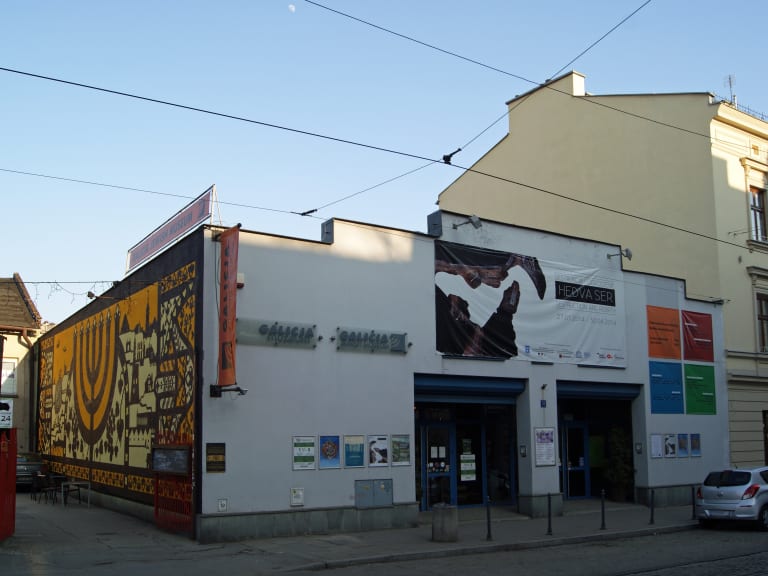
Once back in Krakow, you can take a stroll through the city' s youngest and liveliest neighbourhood: Kazimierz! Today it is a favourite haunt of hipsters who frequent its stylish cafés and art galleries. However, it was not always like this. In the 14th century and until the beginning of the 19th century, these streets were exclusively inhabited by Jews who, despite the restriction of having to live here, enjoyed certain privileges: they governed themselves and only the king could exercise authority over them.
Everything changed during the Second World War. With the arrival of the Germans, the neighbourhood suffered a great deal of devastation. Unfortunately, the situation remained the same during the communist era and it was only in the 1990s that things changed.
If you book a tour of the Jewish Quarter you will visit the Temple Synagogue, the Galician Jewish Museum and the Skałka Church. This last place hides a macabre anecdote: in the 11th century, Bishop Stanisław of Szczepanów was murdered and then dismembered by King Bolesław the Bold over a territorial dispute. If you want to delve deeper into this area of the city, I recommend the post What to see and do in Kraków's Jewish Quarter
Finish off your long weekend with a special dinner
To say goodbye to Krakow, there's nothing better than booking a gastronomic tour of the Jewish Quarter or enjoying a nice dinner in a warm and cosy restaurant like Morskie Oko which answers to the identikit. The establishment is located on the ground floor of an art nouveau building at number 8 Szczepański Square.
The restaurant stands out for its rustic charm, the wooden beams and the fireplace that spreads a pleasant smell of wood in every room. It is the ideal place to try regional Polish cuisine, especially if you are visiting Kraków in winter. The establishment owes its name to the lake of the same name in the Tatra Mountains and means "the eye of the sea" because in the past it was believed that an underground tunnel connected to the Baltic Sea.
If you are interested in the local gastronomy, I recommend reading the post about the 10 best restaurants in Krakow



